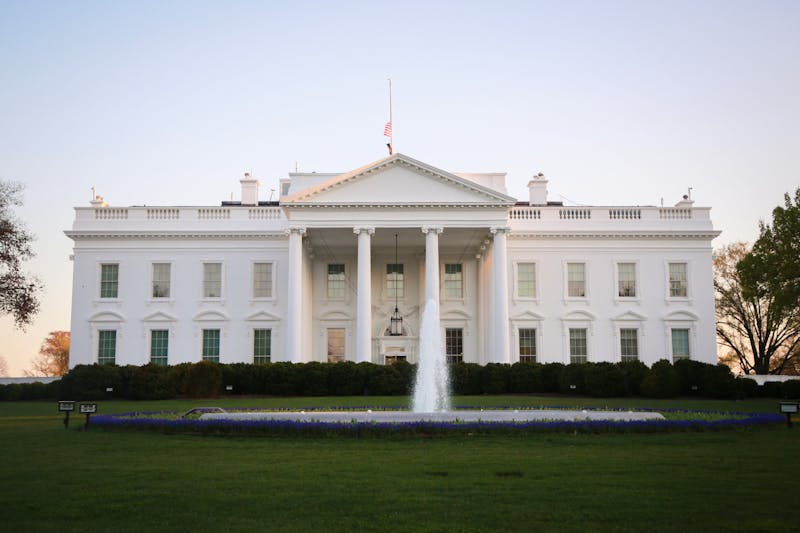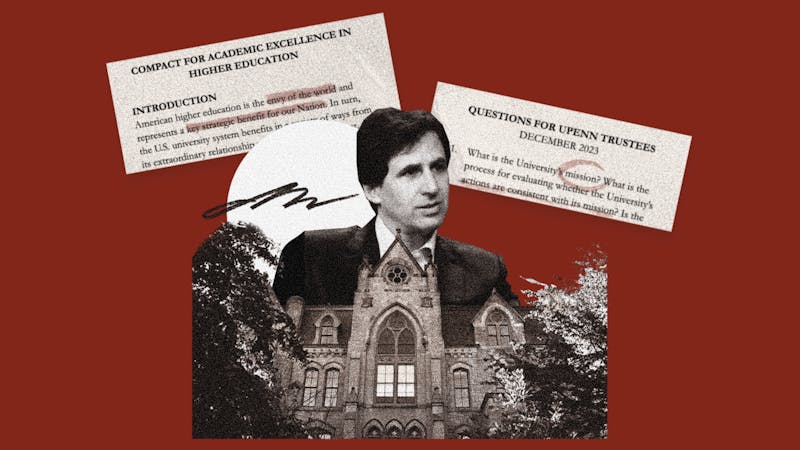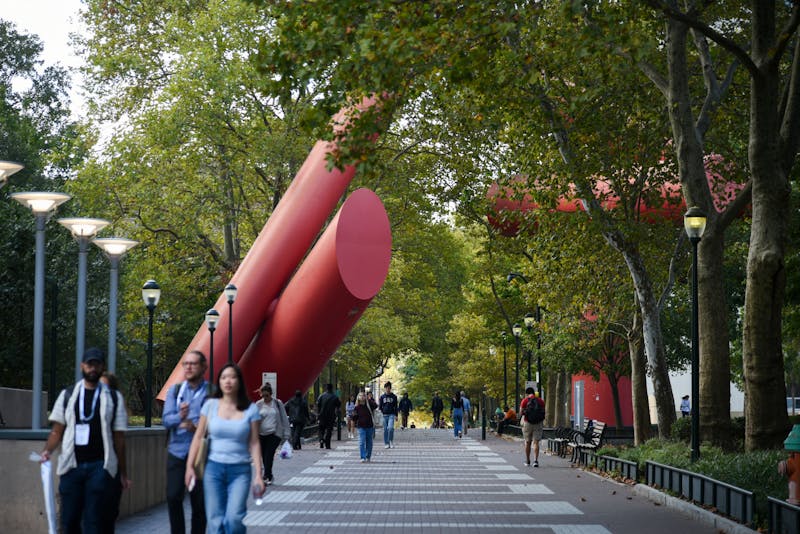Walter Palmer has been a lecturer at Penn for more than 30 years, but that doesn't stop him from having a self-proclaimed "love-hate" relationship with the University. "I love it for the potential of what it could be, but I despise it for what it has done and for what it continues to do," School of Social Work professor explained last night to a group of 30 undergraduate and graduate students. Case in point: "Black Bottom," the once-flourishing West Philadelphia neighborhood that was dismantled several decades ago by the University's wave of westward expansion. In the Rathskellar Lounge of Harnwell College House last Wednesday night, Palmer offered an open, informal session of his graduate course, "Social Work and Political Action." A University City native himself, he discussed Penn's often-strained relationship with West Philadelphia and warned students to think about the roles they play in campus politics and economics. Palmer said students should be aware that the University may be using them as a "consumer of services provided by Penn" -- services which, he noted, students must evaluate and judge for themselves. "Don't just think about these things -- you have to feel. Without feeling, you just won't get it," Palmer said. Penn, according to Palmer, has taken control of land use and land distribution in the surrounding area to the detriment of the residents. "The University should not have the first right of refusal when it comes to land distribution," he said. One student in the class recalled an interview with a North Philadelphia resident who watched developers appraise and plan what would be done with her street. "Unfortunately, the community has sat by and allowed this to happen," Palmer explained. "Students need to begin to raise questions -- if we begin to raise questions, we can bring an end to the mistrust and distrust between the University and the community," Palmer said. Graduate students in the course are currently raising questions through projects in West Philadelphia, University City and North Philadelphia. The class is studying the effect of Penn, Drexel, Temple and the University of the Sciences on their respective neighborhoods. Projects include compiling interviews of community members, city planners and administrators of the schools in these areas. Palmer described the effect of these universities as the "savaging of communities" and reminded the audience that "it doesn't have to be blacks and Latinos --poor white Irish and Italian communities have also been targeted." The key for student activists, Palmer said, is "to gather the data [and] record the history." Penn students must also remember to "view people in the community with some humanity." Penn's reputation for student apathy was also a topic of discussion last night. "I realized [after the sweatshop protest] that Penn as a whole isn't apathetic," said first-year Social Work student Danielle Hill, who organized the discussion. Other students, like Social Work student Alexandra Wittig, said they felt that while the discussion was positive, it was made up of "only a sample of students with some knowledge." "I wonder about the larger community that isn't here," Wittig said.
The Daily Pennsylvanian is an independent, student-run newspaper. Please consider making a donation to support the coverage that shapes the University. Your generosity ensures a future of strong journalism at Penn.
DonatePlease note All comments are eligible for publication in The Daily Pennsylvanian.







